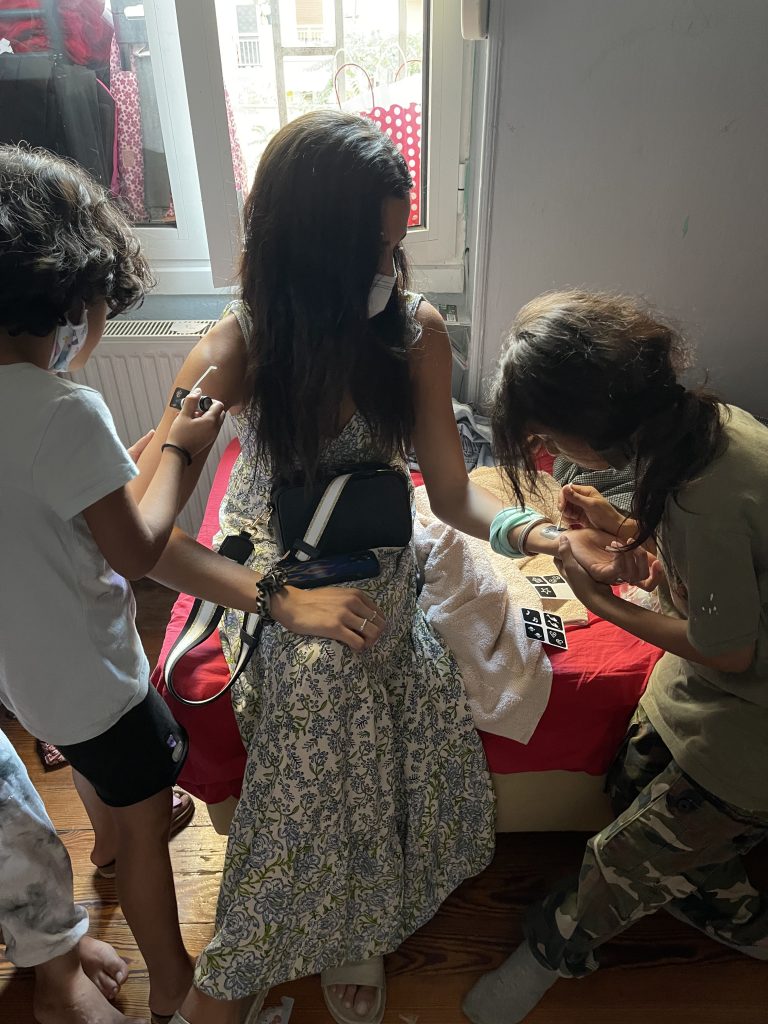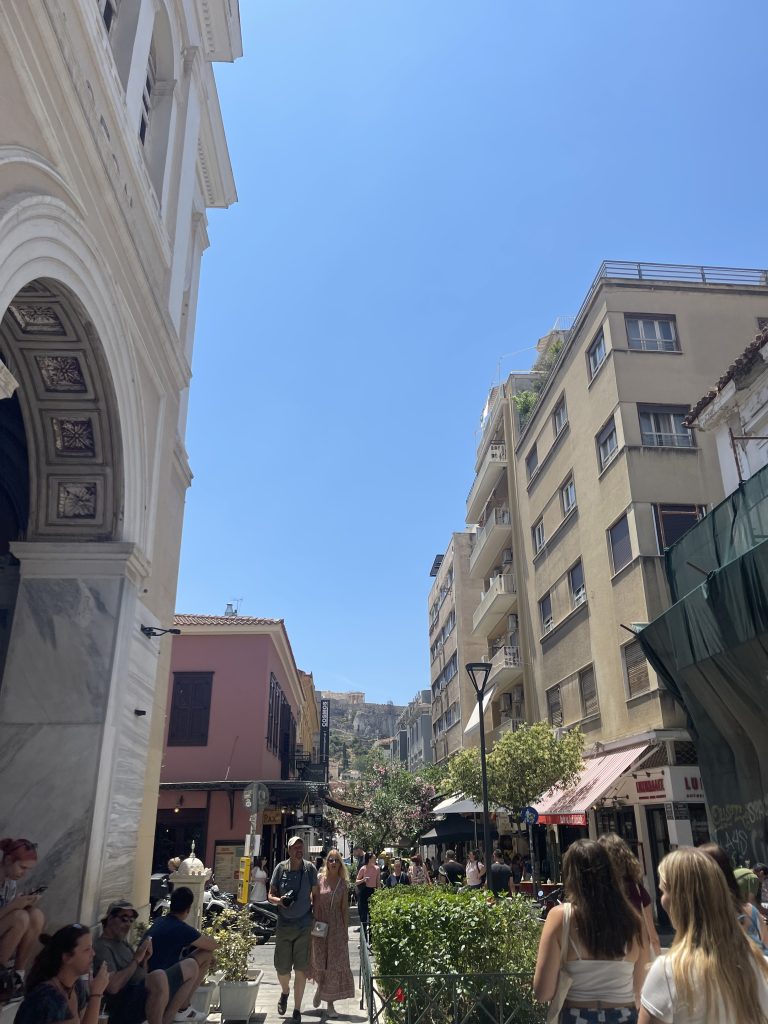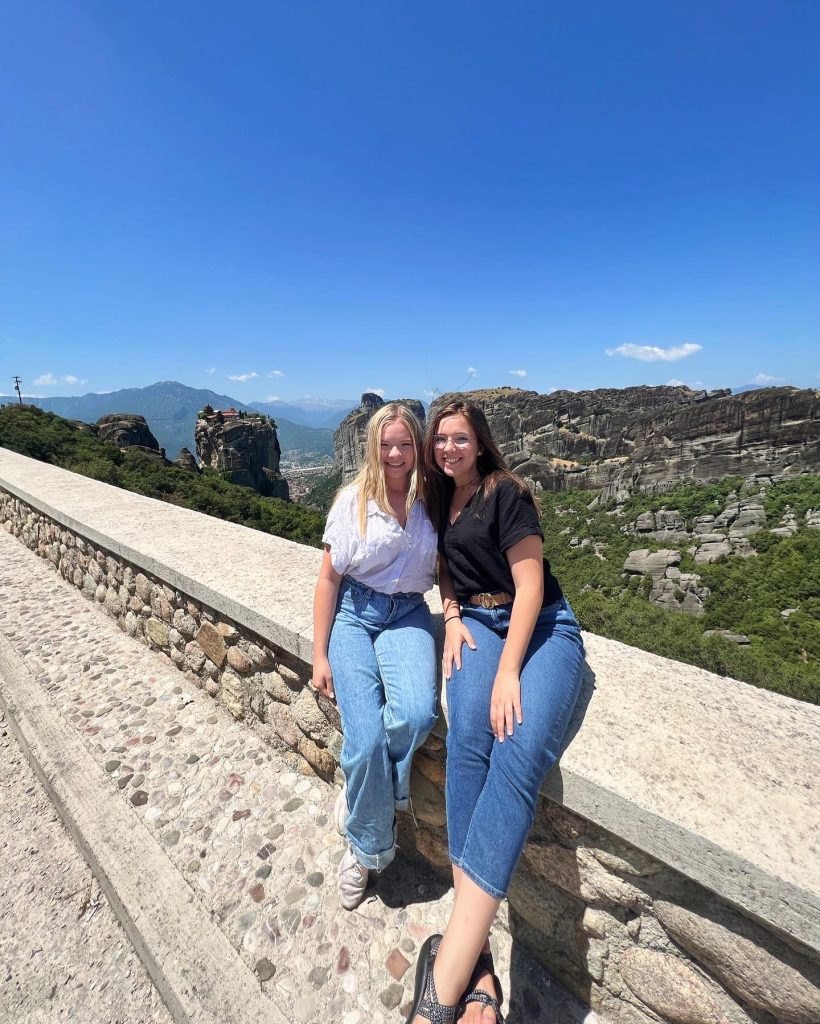Published on Sept. 29, 2022
Today’s world has no shortage of refugees. Spurred by scores of armed conflicts with no end in sight, millions of individuals from the Middle East have flocked to the relative safety of European nations since 2015. Russia’s February invasion of Ukraine only worsened the issue by causing yet another refugee wave that forced millions of Ukrainians to flee their homes. The United States may be a world away from these crises, but that hasn’t stopped some people at the University of Missouri from doing what they can to help.
This past summer, University of Missouri educational psychology professor Stephen Whitney offered the Honors College’s first trip to Athens, Greece that expressly focused on serving refugees. The ten students selected to participate took an eight-week course in the spring on how to work with vulnerable populations and then spent six weeks in Greece teaching English to refugee children from both Ukraine and the Middle East.

“Mine is a service-oriented trip,” said Professor Whitney. “You engage in an experience that not only changes yourself in terms of connecting with someone from a different background, but changes their life as well.”
For senior Channing Bullock from Springfield, Missouri, this trip to Athens checked every box.
“It was nice to get the opportunity to volunteer rather than just take a class. We got a lot of really good hands-on experience,” said Bullock. “I wasn’t just going to Greece to take a trip. I was there to do something. I had a purpose and that made it even better because I got to learn so much more.”
Seeing ancient sights and natural wonders can be one of the most exciting and rewarding experiences someone can have. However, Professor Whitney’s study abroad separates itself from the pack through unique connections and experiences that will last a lifetime.
“There were little times every day where [a kid] would learn a new word in English and that would be especially exciting. Or we would have more of a breakthrough with one of the kids that maybe wasn’t as outgoing when we first met them,” said Bullock. “Watching them develop some more of their English skills, but also create a better connection with us was really, really cool.”
On weekends, the student volunteers also participated in specially curated cultural excursions. Professor Whitney arranged outings to island beaches and bustling cities, in addition to special archeological tours that gave students some inside information on one of the world’s oldest civilizations.

“My goal was to give them a cultural experience,” said Whitney. “A traditional sort of study abroad experience, but also an opportunity to do some service, some good, and engage with individuals that I think they found out were wonderful, but they would never have had that experience of engaging with people from that particular culture or those particular experiences otherwise.”

No matter if its focus is on education or service, the opportunities that study abroad trips offer to students is hard to come by on your average American college campus. Studying abroad gives students the chance to learn from people who have completely different life experiences and history than them.
“If you were to say to me, what one thing could you do to make undergraduate education better? I would say right up there would be a study abroad experience for everyone,” said Whitney. “You come back, and you see yourself, your friends, your family, your country, your discipline in a completely different way that makes you stronger and better.”